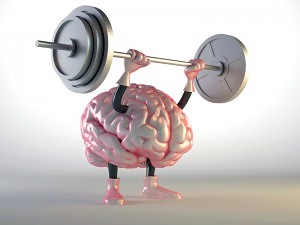 Can brain exercises keep your brain healthier as you age and prevent memory loss? Can they even prevent or delay dementia such as Alzheimer’s?
Can brain exercises keep your brain healthier as you age and prevent memory loss? Can they even prevent or delay dementia such as Alzheimer’s?
We need more studies to know for sure. But a number of studies show the benefits of staying mentally active. Mental engagement is consistently linked with a decreased risk of a decline in thinking skills. So games, puzzles, and other types of brain training may help slow memory loss and mental decline.
Here are answers to some commonly asked questions about the impact of brain exercises on memory and dementia.
Can brain exercises prevent memory loss or dementia?
Researchers still need to do more study. But there appears to be a consistent link between brain training and a decreased risk of mental decline.
Some studies have shown brain training can have long-lasting positive effects. That was seen, for example, in a study called ACTIVE — the Advanced Cognitive Training for Independent and Vital Elderly study.
The study involved 2,802 adults aged 65 and older. Participants attended up to 10 brain-training sessions over a 5- to 6-week period. The sessions included training in strategies for:
• Memory
• Reasoning
• Speed of processing information
People who took the training showed improvements in those areas that lasted for at least 5 years. Even better? This translated into improvements in their everyday lives, such as the ability to manage money and do housework.
But what about prevention of Alzheimer’s and other dementias? Does brain training help? A study published in 2010 looked at this question and found that staying mentally active delayed cognitive (thinking) decline. After onset of Alzheimer’s, however, mental decline sped up in people who were mentally active. How could this be true? It’s possible that being cognitively active initially bolstered the brain, so symptoms didn’t show up until later in the disease process after it reached a kind of tipping point.
The silver lining here? People who are mentally active may spend a shorter part of their lives in a state of decline, even if they develop Alzheimer’s.
How does brain activity help?
Animal studies have shown that mental stimulation may help protect the brain by:
• Decreasing the hallmarks of Alzheimer’s, such as increases in certain proteins (plaques and tangles)
• Supporting new nerve cell growth
• Prompting communication between nerve cells
By keeping your brain active with brain exercises or other engagement, you may help build up a reserve of brain cells and connections. You might even grow new brain cells. This is one explanation for the link between Alzheimer’s and lower levels of education. Experts think that extra stimulation from education may protect the brain by strengthening brain cell connections.
Of course, neither education nor brain exercises provide an insurance policy against Alzheimer’s. But they may help delay the onset of symptoms, prolonging a higher quality of life. And that could be worth a whole lot.
What kinds of brain exercises should I do?
Researchers know even less about the best types of exercise for your brain. They may well vary from person to person. But the main idea seems to be keeping your brain active and challenged.
Learning something new makes new brain cells grow. You could even try something as simple as occasionally eating with your non-dominant hand.
Here is some brain training you might try:
• Learn something new — a second language or a musical instrument.
• Work on crossword, number, or other kinds of puzzles.
• Play online memory games or exercises or video games.
• Play board games with your kids or grandkids.
• Get your friends together for a weekly game of cards.
• Mix it up by trying new games.
The extra bonus of doing activities like these? Social connections also help your brain.
Simply surfing the Internet may be a great way to “stretch” your brain into new territory.
By using MRI scans, researchers have even seen this activity trigger centers of the brain that control decision-making and complex reasoning.
Reading, writing, or attending local adult education classes are other great ways to keep your brain exercised.
WebMD Medical Reference View Article Sources
Reviewed by William Blahd, MD on August 20, 2014
The information provided is for general informational purposes only and is not intended to be medical advice or a substitute for professional health care. You should consult an appropriate health care professional for your specific needs and to determine whether making a lifestyle change or decision based on this information is appropriate for you.
